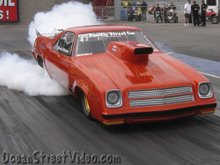Remanufactured Transmissions Vs Rebuilt and Used Transmissions
Transmissions can sometimes be very costly to repair if they
require a complete rebuild. When they require a rebuild, you are often
asked to spend quite a bit of money to have a problem fixed that you
probably don't understand very well.
Transmission Repair Cost
Getting an accurate price quote for a remanufactured or rebuilt transmission is important. There are many different types of transmissions and each type requires different parts and different rebuild kits.
When a transmission requires an overhaul, there are generally three options that you have. The first is to remove your existing transmission and rebuild it, then put the same, newly rebuilt unit back in your car. The second option is to replace your existing unit with a remanufactured transmission. The third is to replace your existing unit with a used transmission.
Rebuild / Rebuilt Transmission
In an overhaul typically done at a transmission shop (also known as rebuilding a transmission), the transmission is removed from the vehicle and completely disassembled with the parts laid out on a workbench. Each hard part is inspected for wear and damage and then either cleaned in a special cleaning solution, or replaced with another part depending on its condition. Parts that have friction surfaces, such as bands and clutches are replaced as are all seals and gaskets. The torque converter is also replaced, usually with a remanufactured one. Upgrades are typically performed to fix any original design defects from the year of manufacture. Automobile manufacturers often make upgrade kits available to transmission shops to resolve these design defects.
Remanufactured Transmission
The remanufacturing process brings a transmission back to as "new" as possible (original equipment). Most internal transmission parts are replaced and any worn parts are brought back to original production specifications. Technical service bulletins are checked and performed. The remanufactured transmission is fully tested and usually comes with a 3 year or longer warranty. There are several brands of remanufactured transmissions sold by auto parts stores and repair shops.
Used / Junkyard Transmissions
Used transmissions normally have high miles and no guarantees. Added to that, the exact make, model, engine size and computer coded transmission has to be installed in your vehicle. Many times, you will be responsible for the labor costs (several hundred dollars) and fluid costs (around $50) of removal and reinstallation if the first unit does not work properly. For every unit that does not work properly, the costs of installing a junkyard unit will double. If the unit is found to have high mileage (there is no way to tell), the unit will fail at any time.
Choosing An Option
When choosing an option, try to be as informed as possible. There are many honest transmission shops and remanufactured transmission companies. But just remember one last piece of information: "Cheaper is not always better".
Transmission Repair Cost
Getting an accurate price quote for a remanufactured or rebuilt transmission is important. There are many different types of transmissions and each type requires different parts and different rebuild kits.
When a transmission requires an overhaul, there are generally three options that you have. The first is to remove your existing transmission and rebuild it, then put the same, newly rebuilt unit back in your car. The second option is to replace your existing unit with a remanufactured transmission. The third is to replace your existing unit with a used transmission.
Rebuild / Rebuilt Transmission
In an overhaul typically done at a transmission shop (also known as rebuilding a transmission), the transmission is removed from the vehicle and completely disassembled with the parts laid out on a workbench. Each hard part is inspected for wear and damage and then either cleaned in a special cleaning solution, or replaced with another part depending on its condition. Parts that have friction surfaces, such as bands and clutches are replaced as are all seals and gaskets. The torque converter is also replaced, usually with a remanufactured one. Upgrades are typically performed to fix any original design defects from the year of manufacture. Automobile manufacturers often make upgrade kits available to transmission shops to resolve these design defects.
Remanufactured Transmission
The remanufacturing process brings a transmission back to as "new" as possible (original equipment). Most internal transmission parts are replaced and any worn parts are brought back to original production specifications. Technical service bulletins are checked and performed. The remanufactured transmission is fully tested and usually comes with a 3 year or longer warranty. There are several brands of remanufactured transmissions sold by auto parts stores and repair shops.
Used / Junkyard Transmissions
Used transmissions normally have high miles and no guarantees. Added to that, the exact make, model, engine size and computer coded transmission has to be installed in your vehicle. Many times, you will be responsible for the labor costs (several hundred dollars) and fluid costs (around $50) of removal and reinstallation if the first unit does not work properly. For every unit that does not work properly, the costs of installing a junkyard unit will double. If the unit is found to have high mileage (there is no way to tell), the unit will fail at any time.
Choosing An Option
When choosing an option, try to be as informed as possible. There are many honest transmission shops and remanufactured transmission companies. But just remember one last piece of information: "Cheaper is not always better".
Need an estimate on a remanufactured, rebuilt or used transmission now? Visit http://www.TransmissionRepairQuotes.com or call 866-812-7560 for estimates on rebuilt and remanufactured transmissions today.
Article Source:
http://EzineArticles.com/?expert=Corey_Turner

